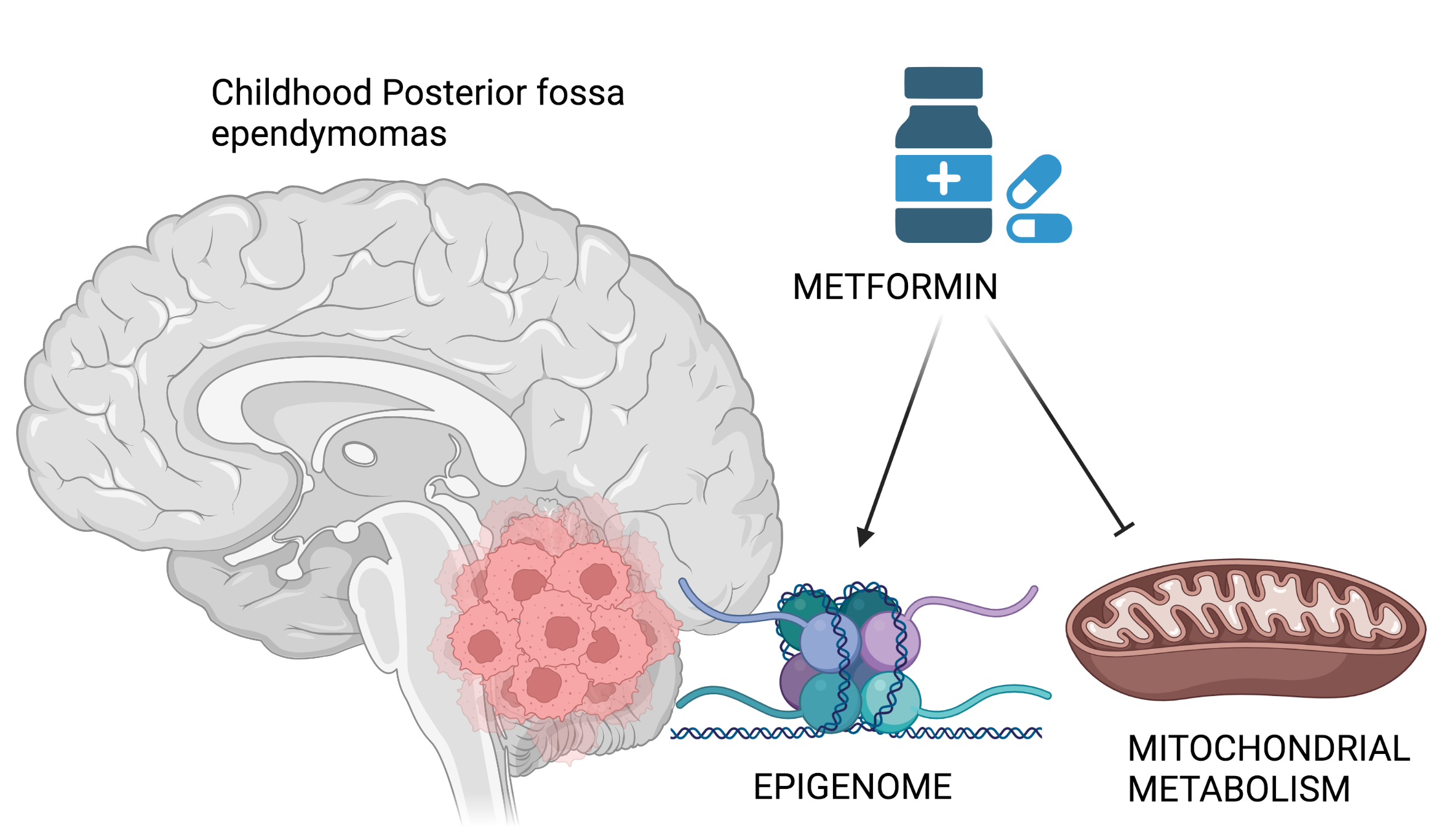Repurposing an anti-diabetic drug to reverse aberrant epigenetic pathways in childhood ependymomas.
By Sriram Venneti | October 7 2021Metformin holds promise against a rare type of childhood brain tumor in laboratory studies, as per an international team of researchers led by Dr. Sriram Venneti report in Science Translational Medicine. Childhood ependymomas, called PFA ependymomas, arise in the developing hindbrain/ posterior fossa of infants and young children and are devastating tumors. 
These tumors challenge our view of cancer being a genetic mutation-driven disease as more than 80% of posterior fossa ependymomas do not bear recurrent genetic mutations. Instead, they are epigenetically driven diseases as they do not exhibit permanent mutations to the DNA itself, but show marked changes in how cells access and read DNA sequences. These epigenetic changes caused tumor cells to rearrange metabolic pathways and markedly increase glucose and mitochondrial metabolism. Diabetes was an obvious field to turn to when looking for ways to suppress glucose metabolism. Surprisingly, the anti-diabetic drug metformin not only inhibited these key metabolic pathways, but also reversed aberrant epigenetic changes in tumor cells resulting in marked tumor suppression in pre-clinical animal models. Overall, this study raises the possibility of repurposing metformin as a potential treatment for these childhood brain cancers.
 ON THE COVER
ON THE COVER
 ON THE COVER
ON THE COVER
 ON THE COVER
ON THE COVER
 ON THE COVER
ON THE COVER
 ON THE COVER
ON THE COVER
 ON THE COVER
ON THE COVER
 ON THE COVER
ON THE COVER
 ON THE COVER
ON THE COVER
 ON THE COVER
ON THE COVER
 ON THE COVER
ON THE COVER
